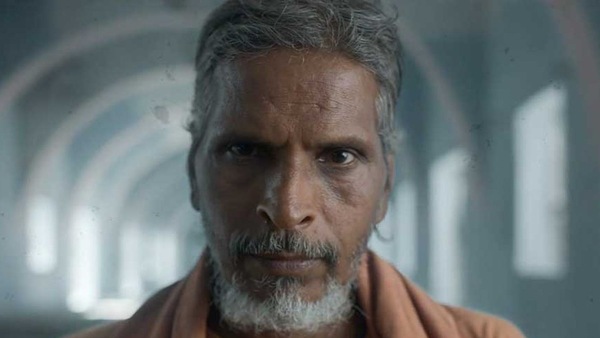Indian Predator – The Diary of a Serial Killer review: Raja Kolander - remorseless psychopath or innocent man denied justice?
The three-part Netflix series attempts to present a balanced narrative about the case, with inputs from the police and other experts and the accused himself.

Last Updated: 05.44 PM, Sep 07, 2022
Story: In 2000, Ram Niranjan alias Raja Kolander was accused of committing 14 murders. He was convicted for three, one of which was that of a journalist called Dheerendra Singh. Raja Kolander, however, insists he is innocent and that his conviction is based on false statements concocted by the police. He also claims that he’s a victim of trial by media, and has challenged his convictions in the upper court, which is still on going.
Is Raja Kolander really the cannibalistic serial killer that the police and media have painted him to be? Or did his rise in political ranks ruffle the feathers of opponents, who sought to silence/sideline him?
Review: The latest edition of Netflix’s Indian Predator docu-series focuses on one man who allegedly killed 14 people, and exhibited cannibalistic behaviour too. Police claim that he made a stew out of the brain of one of his victims in the hope of some form of ‘knowledge transfer’ to his brain. But then, according to the alleged ‘monster’ serial killer, who supposedly dismembered most of his victims before disposing of their bodies, he hasn’t done any of it. Hell, he says he has led a largely vegetarian lifestyle, so there’s no question of having meat and that too from a human.
What Indian Predator: The Diary of a Serial Killer does is present ‘facts’ from both sides. On the one hand are the cops who cracked the case, and a clinical psychologist whose medical opinion is that Raja Kolander displays classic serial killer behaviour, wherein he is judge, jury and executioner and has no remorse about anything he’s done. The murders are his way of dispensing justice, apparently. The fact that he chooses to be known as Raja Kolander is proof that he thinks he is king and can dispose of his subjects the way he wants. There are statements from the kith and kin of victims, and someone who claims to have narrowly escaped being targeted by Raja Kolander, all of which swerves towards the narrative that he is a remorseless monster. Raja Kolander’s tribal roots are also seen as a factor to establish his behavioural patterns.
But what the three-part show also does is present Raja Kolander’s version of events. His supposed confession in the murder of journalist Dheerendra Singh and in the robbery of a Tata Sumo vehicle, which also involved killings, are forced statements that came at the end of brutal third-degree interrogation. Former prison mates who were interviewed also say that despite the rumours of the heinous crimes Raja Kolander is alleged to have committed, he always came across as a peace-loving, spiritual and very helpful man. A man with no vices to speak of, Raja Kolander claims that barring the occasional fish, he’s been largely vegetarian.
What actually transpired, according to the alleged serial killer is that his family’s growth in political stature did not sit well with some others who needed him out of their way. Several of the names listed in the diary that is being attributed to him are apparently people who are still alive. In his interview, Raja Kolander says that he’s been accused of murdering his neighbour, who, as it stands, is pretty much alive.
The case that the law enforcers present is that Raja Kolander is not a man who should be let out into society at any cost – he will commit more crimes, they claim. The counter-claim is that he is a poor man whose voice got lost amid all that was happening around him. Raja Kolander says that his case is one of human rights violations at the hands of the judiciary that continues to fail him by pushing his case forward at every hearing. He is an innocent man hoping to get justice.
Verdict: At times it may feel that Indian Predator: The Diary of a Serial Killer is leaning towards the police narrative and you may be inclined to loathe the man who committed these alleged heinous crimes. But then you are also forced to wonder whether there’s even an iota of truth in what Raja Kolander claims. Could there be something to that, after all?
Unlike The Butcher of Delhi, The Diary of a Serial Killer is on much surer footing and a much better and engaging watch.
WHERE
TO WATCH
Subscribe to our newsletter for top content, delivered fast.

